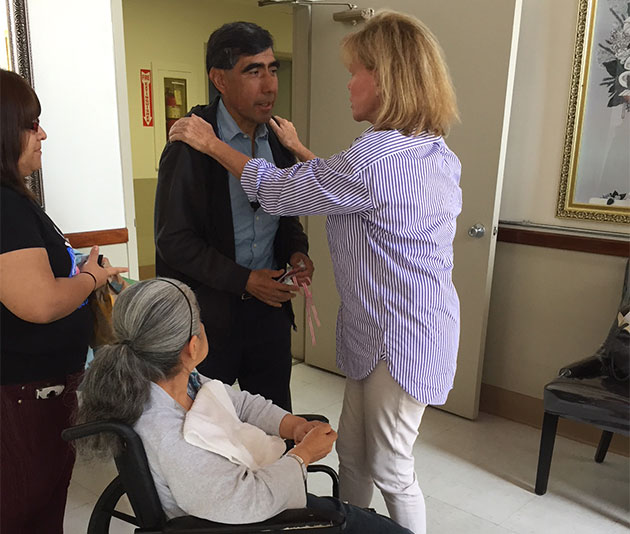Kathi's Caregivers Program & Application
Through the Kathi’s Caregivers Program, the foundation offers short-term financial subsidies for caregivers in need.
To be considered for the Kathi’s Caregivers Program, the caregiver must be a full or part-time family caregiver and be able to demonstrate financial hardship.
To apply for a grant, please download and fill out the application as well as the HIPPA Compliance Waiver Form. All applications are reviewed and considered in a timely manner.

For additional assistance please review these suggested tips and resources:
TIP: What once may have been a routine annual physical requiring testing, vaccines or shots can be more challenging for loved ones that are older, suffer from dementia or have disabilities or infirmness from a stroke or cancer. These testing appointments can bring on added stress for both caregiver and the patient. Read this helpful article from Testing.com for some worthwhile tips to help.
TIP: Protecting your loved ones from cybercrime and internet scams is essential, as discussed in my blog How to Fight for Your Loved One’s Against Internet Scams, but sometimes your loved ones’ mailbox can also be an invitation for scams! You can reduce fraud risk by getting rid of junk mail. Stopping the junk mail being sent to your older adult’s house is crucial for reducing their fraud risk. It also reduces the risk that someone with early dementia would repeatedly donate to multiple charities, sign up for many credit cards, or spend an excessive amount through catalog purchases. Read this helpful article from DailyCaring.com to find out how to stop the junk mail. Also be aware that your and your loved one’s cell phone can be another entrée for cybercrime. This helpful article, Security and Your Phone, outlines the risks and how to keep you and your phone safe and secure.
TIP: Always be prepared for whatever life brings your way! You never know when a health emergency may happen (It’s a Vacation…Until it Isn’t) so please remember to keep your and your loved one’s medical information on an emergency information card that stays with you at all times. Include your insurance company (phone, group, and ID numbers), medications, doctor’s name and number, and the phone numbers and email addresses of important contacts (children, spouse, friends, etc.). Remember to update it when the information changes. This card could save your life by providing vital information a doctor might need in an emergency. This sample Emergency Information Sheet may be downloaded for use by any caregiver.
Additional Resources
- AARP Family Caregiving
- Alzheimer’s Association
- American Cancer Society
- AssistedLiving.org
- Bankrate’s Senior Driving Safety Tips
- Caregiver Action Network
- Caring.Com’s Senior Care and Assisted Living Guide
- Center for Disease Control (CDC) Covid-19 Updates
- Coast Caregiver Resource Center
- Daily Caring
- Department on Aging
- Family Caregiver Alliance National Center on Caregiving
- Family Proud
- Federal and State Financial Assistance for Seniors
- Eldercare Locater
- Independence at Home
- Medicare Plan Finder
- Medicaid
- Meals on Wheels
- Military and Veteran Caregiver Network
- National Alliance for Caregiving (NAC)
- National Alliance on Mental Illness
- National Institute on Aging
- PayingForSeniorCare.com
- Red Cross
- US Department of Health and Human Services
- US Department of Veterans Affairs
- USC Family Caregiver Support Center
- Venice Family Clinic


